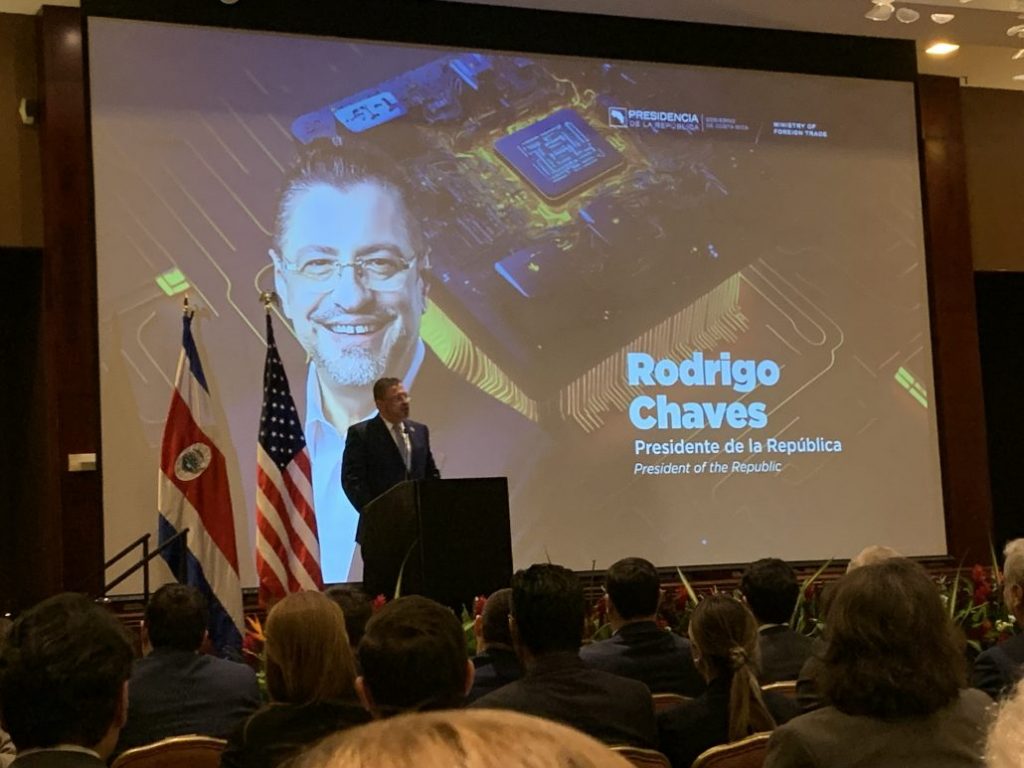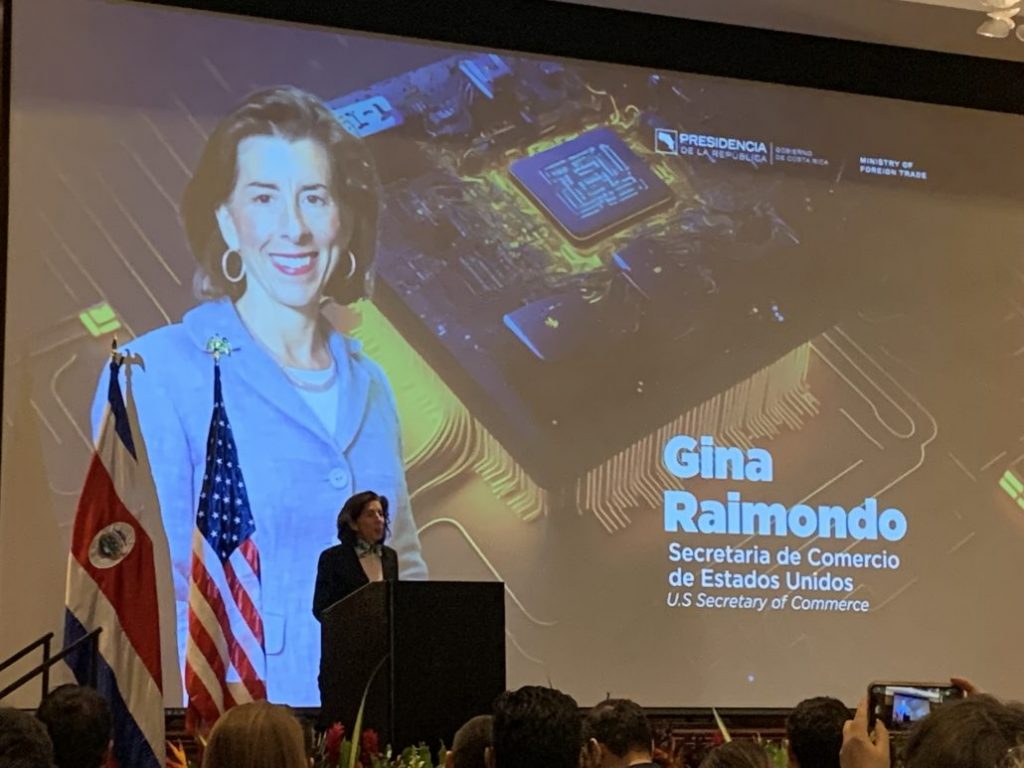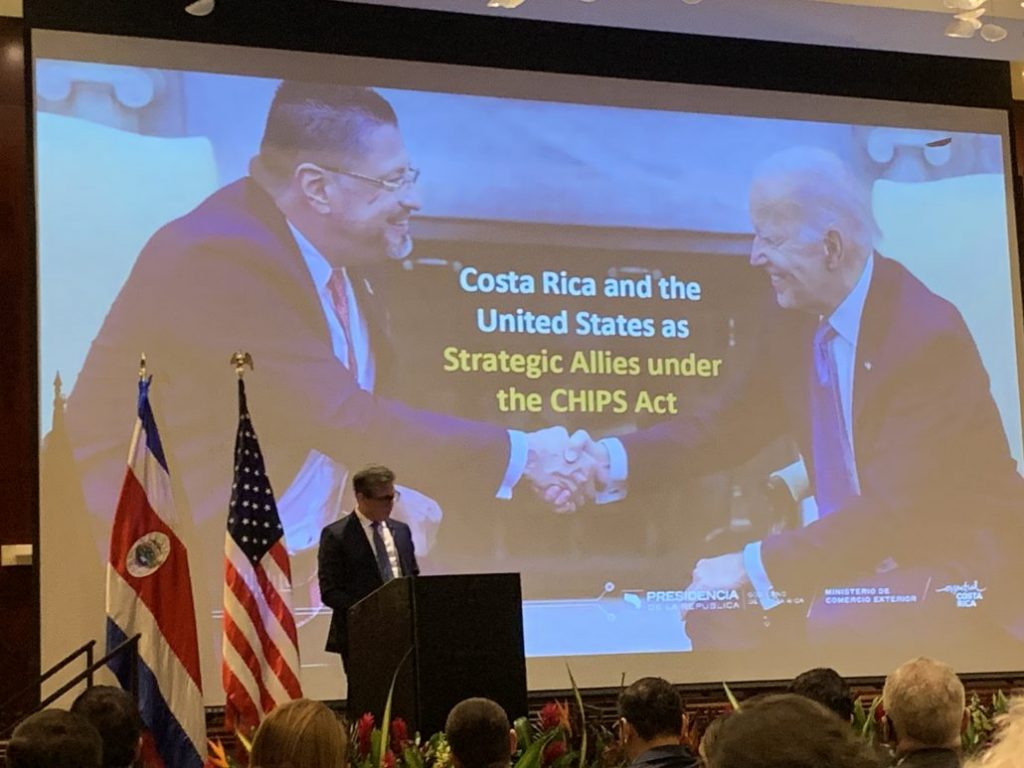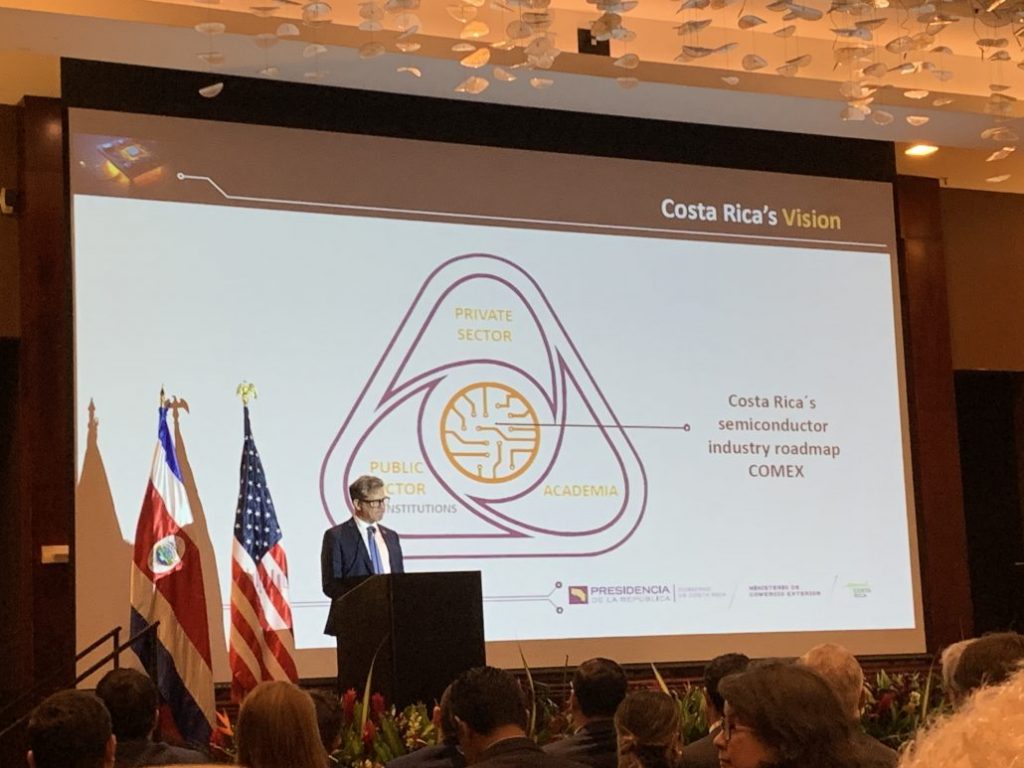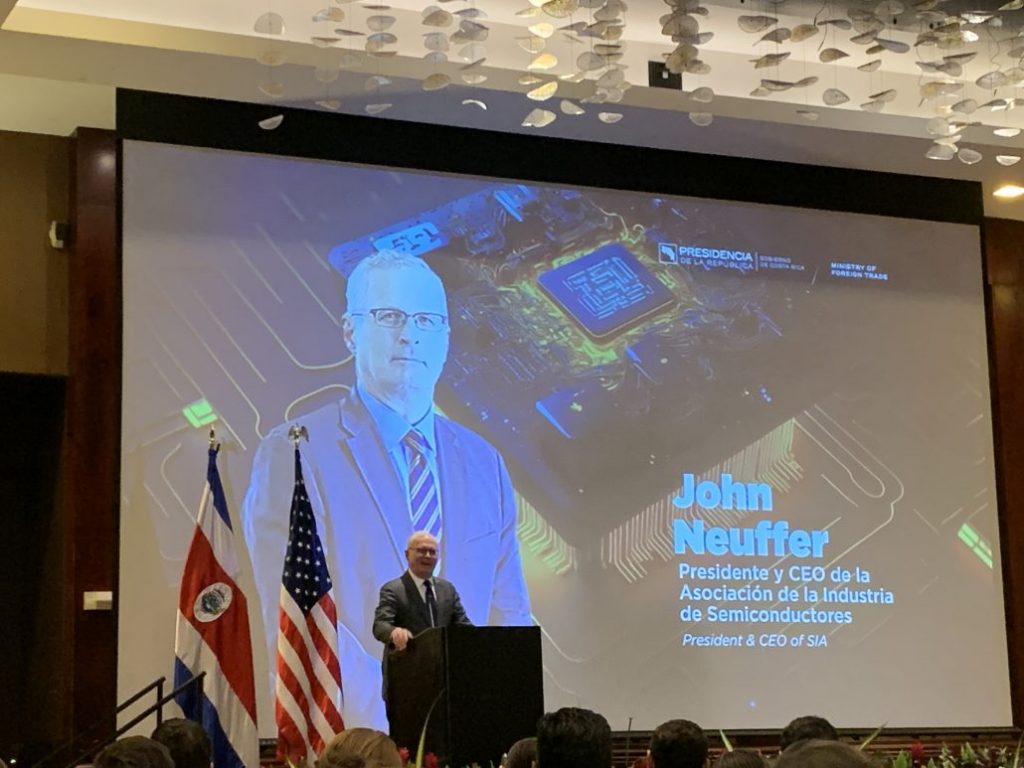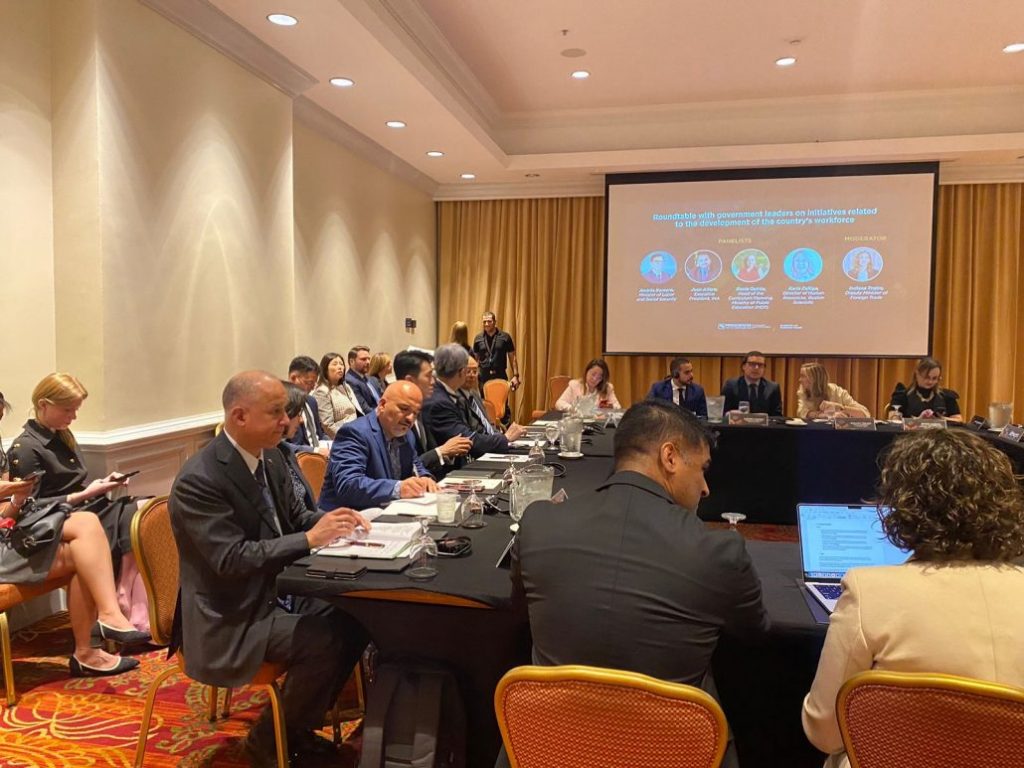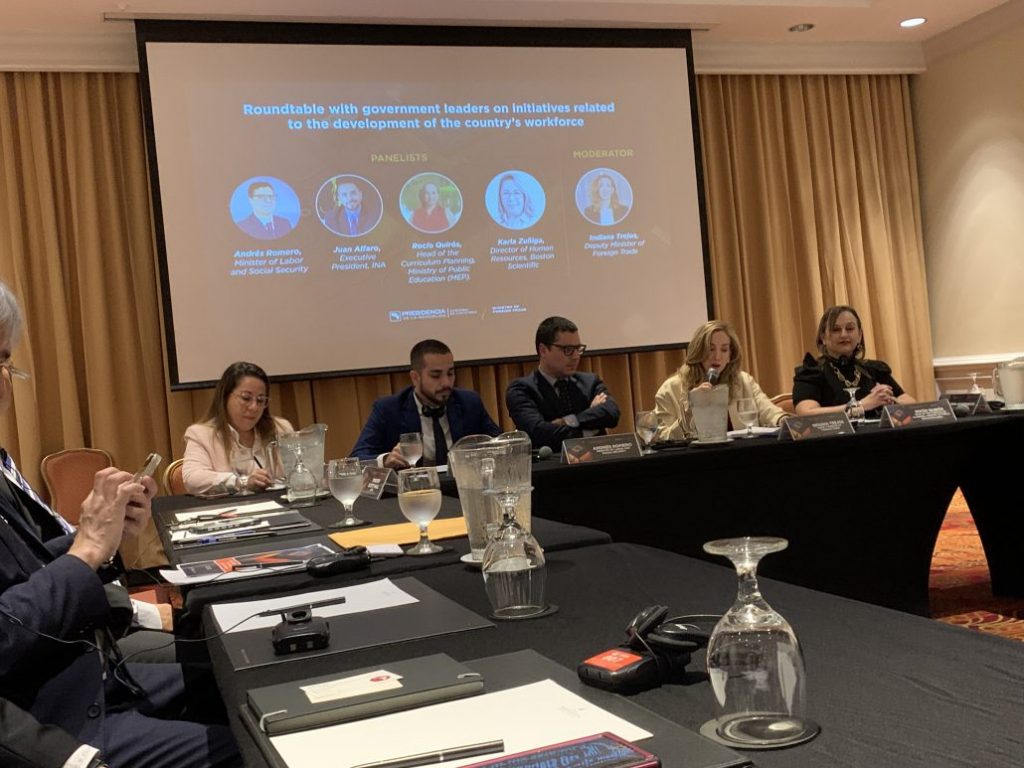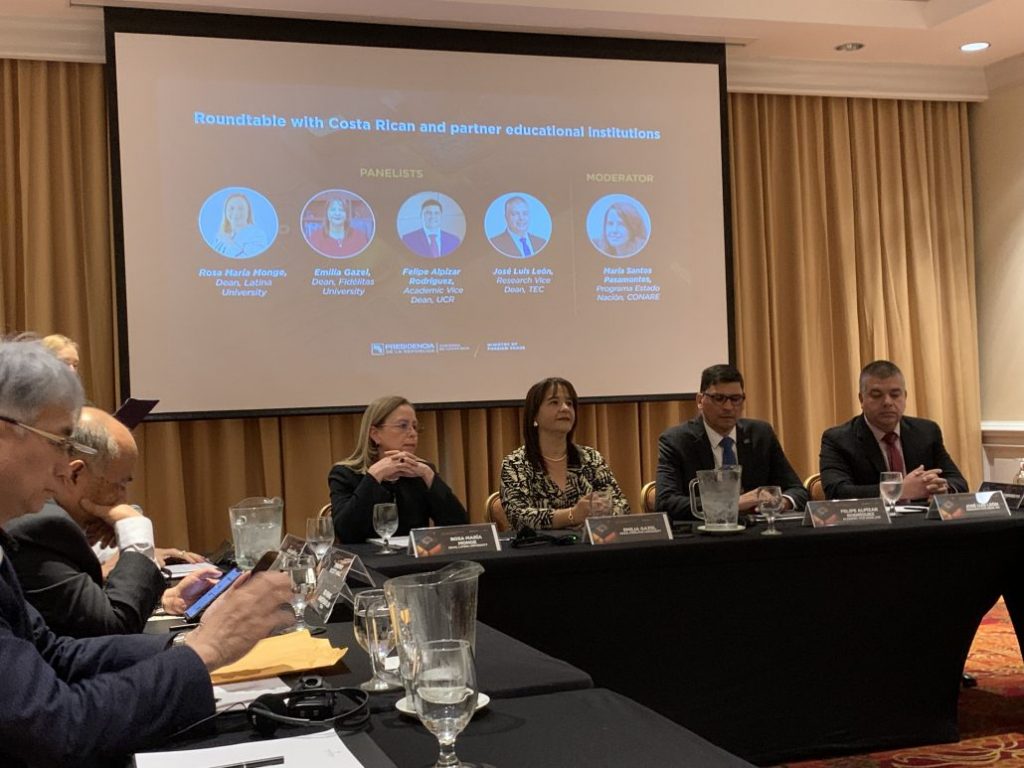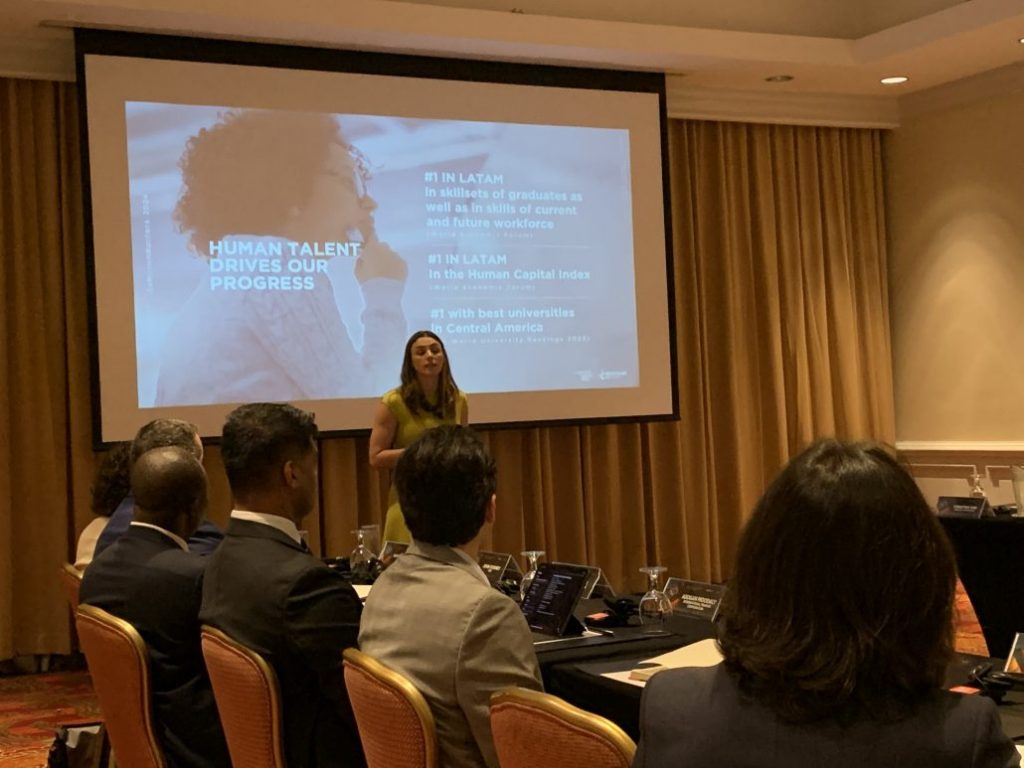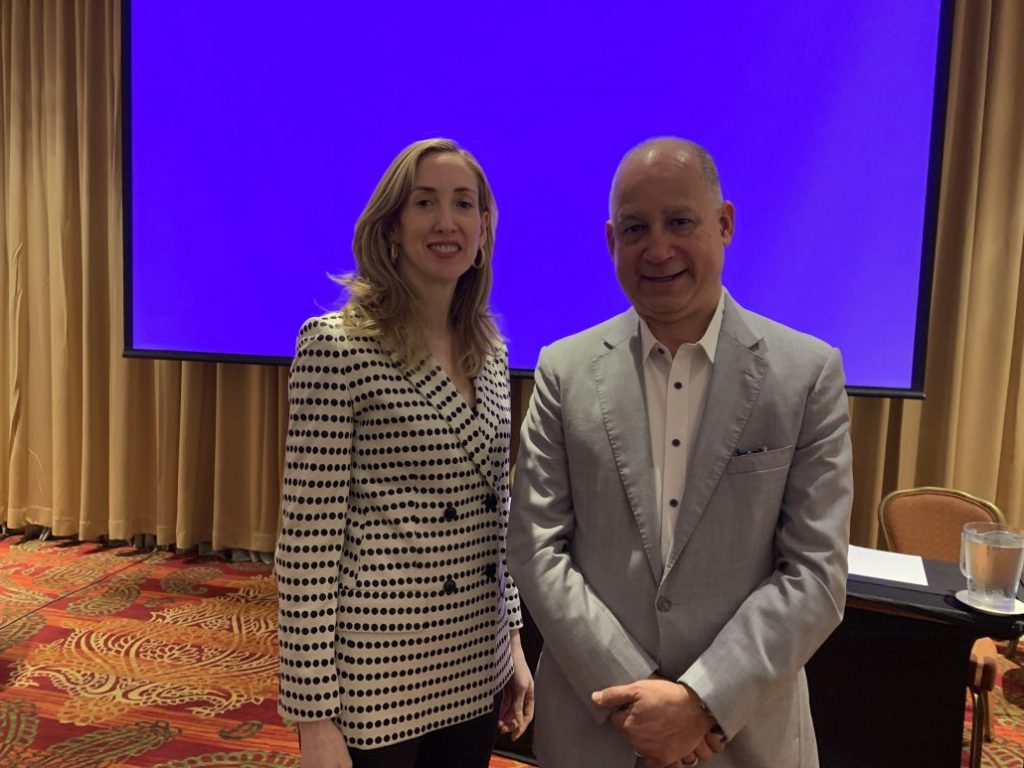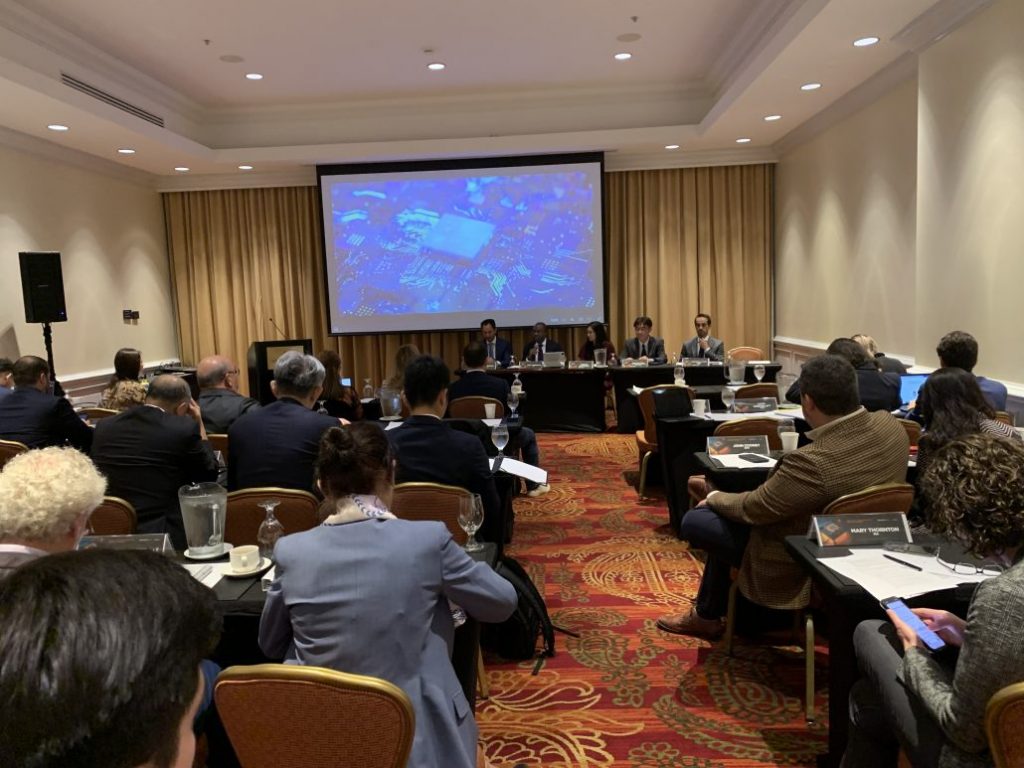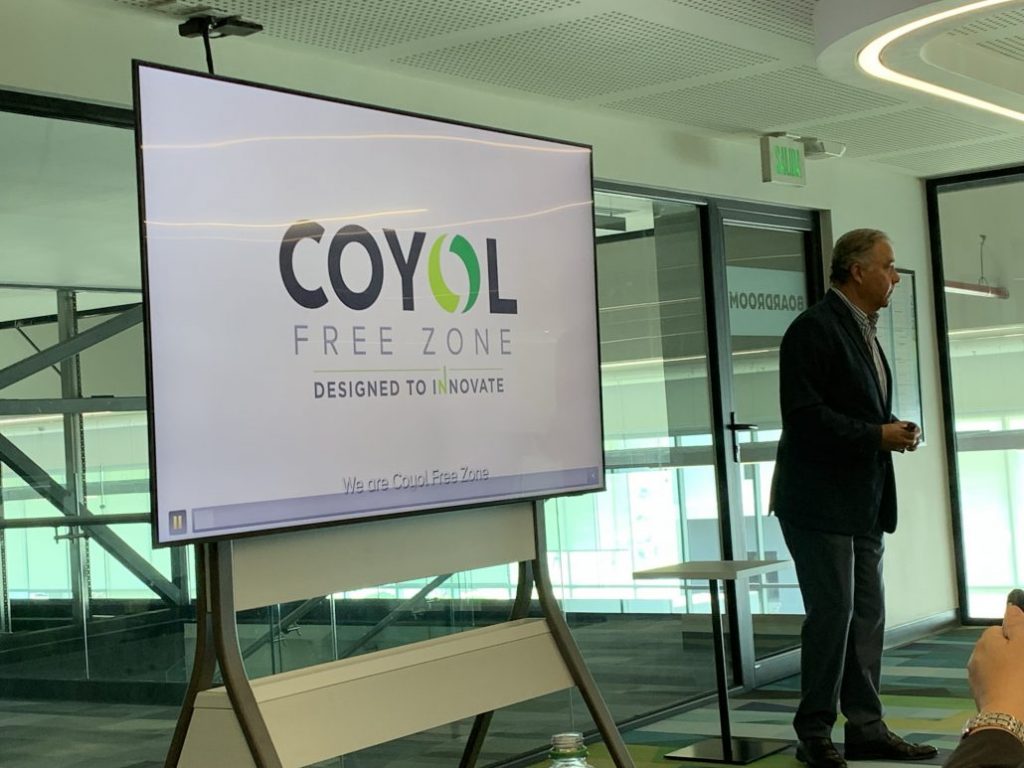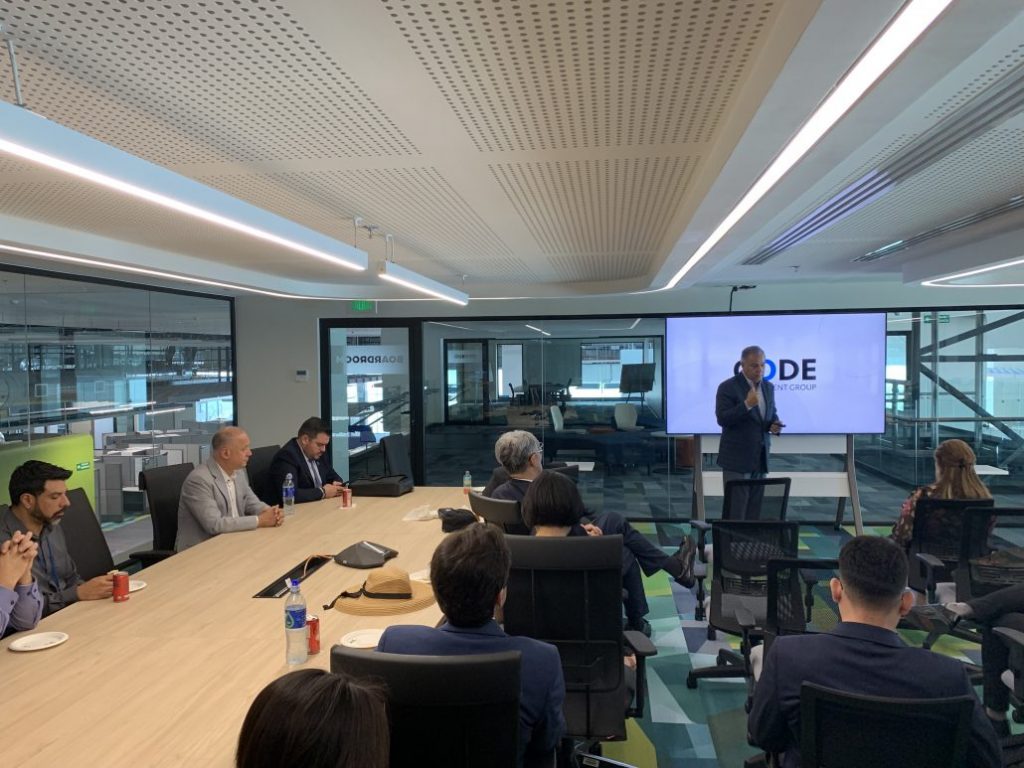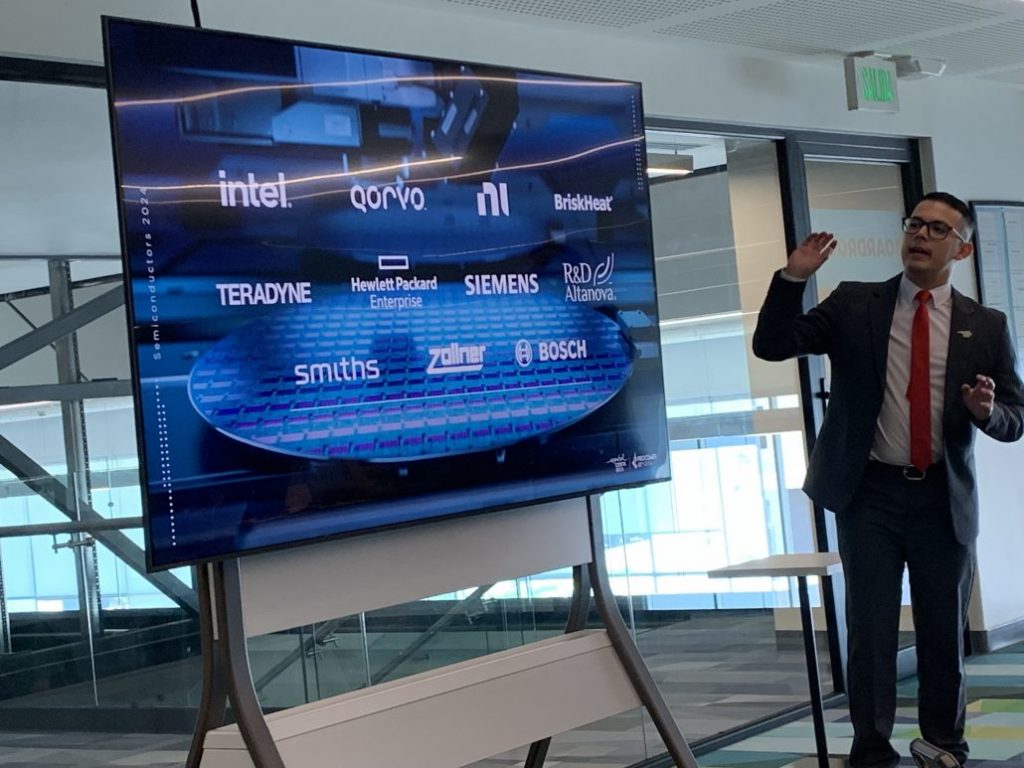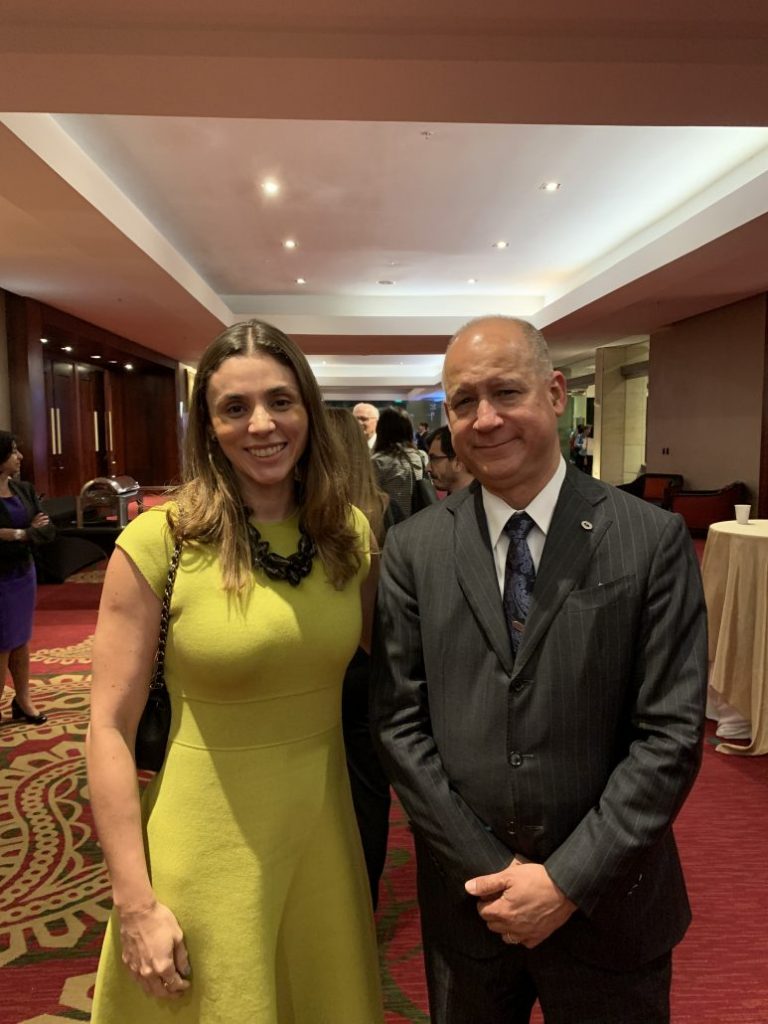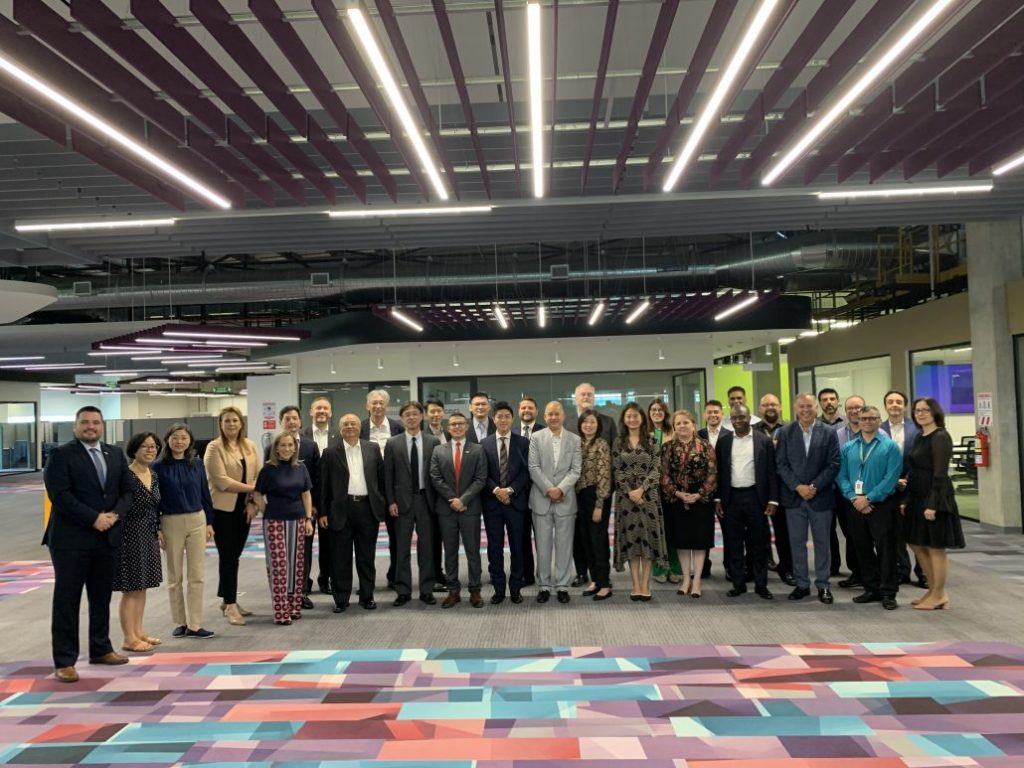Costa Rica Launches Semiconductor Industry Roadmap
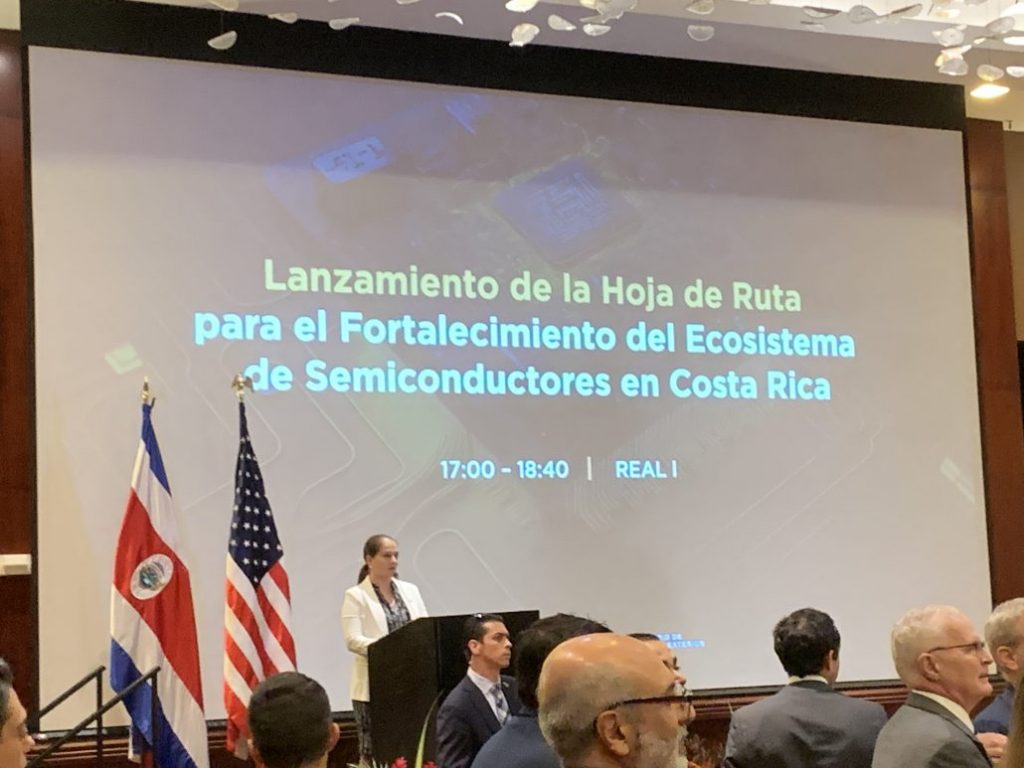
Dr. Ritter Díaz, Director Representative of JAPOLAC, participated in the launch of Costa Rica’s Semiconductor Industry Roadmap by invitation from the Minister of Foreign Trade of Costa Rica, H.E. Manuel Tovar. The event took place at the Intercontinental Hotel on March 21 and 22, with the presence of the President of Costa Rica, His Excellency Mr. Rodrigo Chávez, the US Secretary of Commerce, H.E. Gina Raimondo, and the President of the Semiconductor Industry Association, Mr. John Neuffer, among other special guests.
Since the late 1990s, Costa Rica has embarked on an industrial transformation process driven by the arrival of INTEL, one of the leading global semiconductor production companies, and the establishment of a partnership between Costa Rica and the United States to explore opportunities for diversifying and growing a more resilient, secure, and sustainable global semiconductor value chain. This partnership is facilitated by the International Technology Security and Innovation Fund (“ITSI Fund”), created by the CHIPS Act of 2022 in the USA.
Today, Costa Rica is not only engaged in testing, assembly, and packaging of semiconductors but is also venturing into chip design, as well as developing other light industries such as the manufacturing of medical devices, production of precision industrial tools, among other industrial activities.
Prior to the launch of the Roadmap, Dr. Díaz participated in several working sessions led by the ministers of foreign trade, labor, education, and the main universities in Costa Rica involved in training human resources in semiconductor-related fields.
Dr. Díaz had the opportunity to greet and thank the Deputy Minister of Foreign Trade, H.E. Indiana Trejos, and the CEO of the Costa Rican Foreign Trade Promotion Agency (PROCOMER), Mrs. Laura López, for the invitation to such a special event, which marks an important milestone in the country’s industrial transformation process.
Additionally, Dr. Díaz participated in a tour of the Coyol Free Trade Zone where he firsthand learned about companies linked to the semiconductor industry and the manufacturing of high-precision tools for high-tech companies, which employ over 400 highly skilled professionals trained by the Costa Rican Technological University (TEC). Currently, there are around 500 renowned companies established in the country.
It is worth noting that during the working session with the universities, the Vice President of TEC explained that INTEL’s arrival in Costa Rica prompted a change in the educational model, generating an engineering adapted to the company’s needs, which was replicated in companies from other industrial sectors. In summary, Costa Rica’s educational model reflects an educational paradigm that prepares citizens for life, integrating them into the productive forces of the country with high-quality and well-paid employment. As a professor at the University of Costa Rica commented to me, the country went from “banana chips to microchips.”

